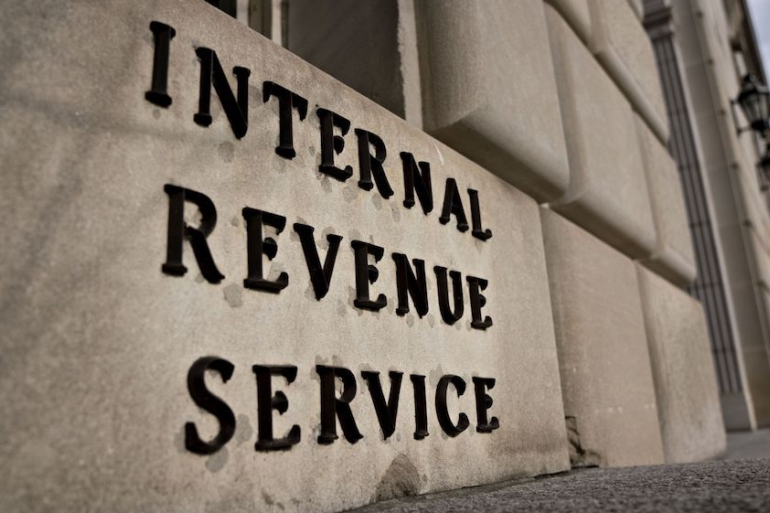The Birth of a Mess
Since Obamacare was passed a decade ago and the IRS become the primary administrator of so many parts of its enforcement, the IRS, which was already stretched thin and had never been anyone’s poster boy for efficiency, began its long downward spiral of dysfunction. One political party blames the other party for bleeding the agency of needed funds to carry out its mission. The other party blames the former for overburdening the agency with unlimited new tasks that have little to do with tax collection and administration. Both are correct. Politics ultimately culminated in a thirty-five day political shut down of the agency at the beginning of 2019 (from which the agency had not remotely recovered). And then Covid-19 struck.
As of now, the IRS is barely functioning. Covid-19 shut down most IRS operations and IRS offices remained closed until August of last year. Even now, a great deal of their staff is working from home. At its worst, the IRS was faced with forty million pieces of unopened correspondence that had been loaded into trailers to be processed at some later date. We anticipate that the Covid-19 delays will continue until late 2023. Below, please find a small sample of the blowback our clients face:
Erroneous IRS Notices
No one likes getting an IRS notice. It can be nerve-racking; the notice might be hard to decipher and it is difficult to discern the appropriate next step. Because of the IRS chaos, you are more likely to receive a notice now than ever before. If you get a notice, before freaking out, understand there is a very good chance that the notice is in error. Here are some examples:
- You have paid your taxes, but still get a notice: This is the most common notice we see – especially around a due date. If you paid your taxes due within a week or two of a filing deadline, you most likely received such a notice. To add insult to injury, the notice includes some penalties and interest. This notice is incorrect. Once the IRS computer properly posts your payment to your account, the penalties and interest will automatically be removed. If you get this notice, confirm that your payment has cleared your bank account. If it has, then wait. If you do not get any further notices, then the issue is resolved. If you get a follow up notice, please contact our office and send us that notice.
- I sent my check, but it has not cleared my bank account yet: We have encountered this issue more than at any time in the past. If you receive a letter regarding a payment you submitted months ago and that payment has not cleared your bank account, please contact our office and be prepared to send us that notice. This type of issue is more complicated to resolve because the IRS will assess late payment penalties and interest until we prove the payment was timely made. We STRONGLY recommend that any payments not made at the IRS website be sent by traceable mail. Without such proof, we will have a hard time abating those charges.
- IRS shows you submitted a tax return, but they cannot locate it: Yes, they admit they lost your return. We have seen more of these this year than all other years combined. If you get such a notice, please send it over to us to ensure we provide the exact information they are requesting.
- The IRS needs 60 to 90 days more to process your return/request: If you have been waiting for months to receive a refund or resolve an IRS issue, this notice can be very frustrating to receive. (How would the IRS respond if we sent them such a letter?) But in the current environment, receiving such a notice proves the IRS received your correspondence and might be working on your issue. Trust us, this is good news.
- You have an outstanding issue, missing refund, unaccounted for payment and you have not received a notice: This is where things get frustrating. It is bad enough that the IRS computer is slow, but for any issue that necessitates a live human handle your file, you are looking at a six month to year long wait. As such, if the IRS computer detects an irregularity on your return (such as your reported stimulus payment does not match the IRS file), if you file a paper return (instead of electronically), if you have an identity theft issue or if you need to submit additional information to the IRS, it will be a long wait. It is even worse when the IRS computer erroneously reflects that you have a balance due because you will continue to receive collection letters and threats until the IRS fully processes your response to them.
Should You Call the IRS?
Good luck. IRS phones are literally ringing off the walls. At the height of tax season, it was reported the IRS was receiving 1,500 calls per second. That is four times the number of calls they normally receive. Only about 3% of the calls placed ever reached a customer service representative. And even if you get through after hours of sitting on hold, you are likely to be told to wait and call back in 45-60 days. Just be ready! Ah. And one more thing: After more than an hour or two on hold, you might receive the disastrously named ‘courtesy disconnect’.
A Quick Summary of Issues You Might Encounter
- Electronic returns that normally process in two weeks may take a month to process. You can expect processing to take three months if the return is sent to the Error Resolutions Department for review by an IRS employee.
- Paper returns and amended returns are taking six months to a year to process.
- Instead of taking the normal fourteen days to process, Power of Attorney forms may take three to six months to process and post. Without a POA properly posted, our office cannot access the IRS electronic data records and we are limited to calling the IRS each time we need information.
- Mailed checks are a complete crap shoot. They may process in six weeks; maybe ten weeks. And that assumes the payment does not get lost.
Tools Available to You
Though it might not be much help, the IRS does provide the following tools to track your file: (
- To check on a refund you can go to IRS.gov and click on “Where’s my refund?”
- To check on an amended return you can go to IRS.gov and click on “Where’s my amended return?”
To make a payment, you can go to IRS.gov and click on “Make a payment.”
Looking for something specific?
Use "Search Box" below... or click on a "Category."

